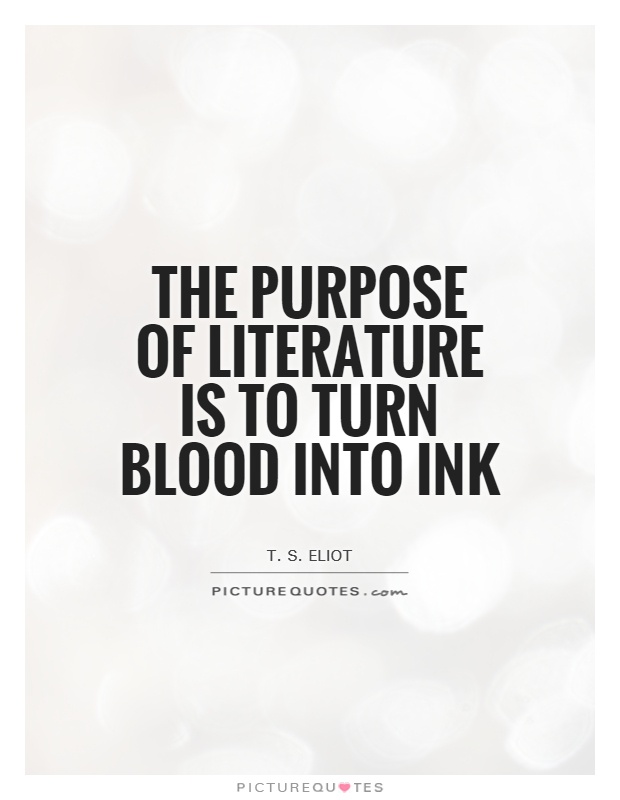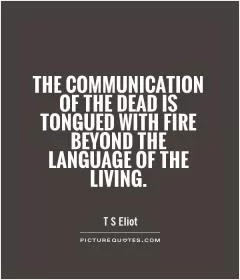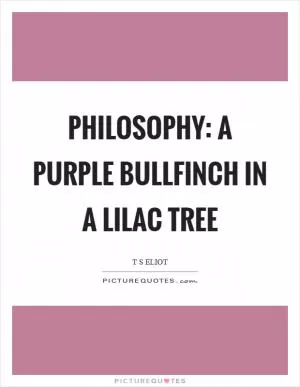The purpose of literature is to turn blood into ink

The purpose of literature is to turn blood into ink
T.S. Eliot, one of the most influential poets of the 20th century, once famously said, “The purpose of literature is to turn blood into ink.” This profound statement encapsulates the transformative power of literature and the profound impact it can have on both the writer and the reader.For Eliot, literature was not just a means of self-expression, but a way to delve deep into the human experience and explore the complexities of existence. By turning “blood into ink,” he suggests that literature has the ability to take raw, visceral emotions and experiences and transform them into something tangible and enduring. Through the act of writing, the writer is able to distill their innermost thoughts and feelings into words, creating a lasting record of their inner world.
Eliot’s own work is a testament to this idea. In his groundbreaking poem, “The Waste Land,” he delves into the fragmented nature of modern life and the disillusionment of the post-World War I era. Through his vivid imagery and complex symbolism, Eliot captures the despair and alienation of the time, turning the collective trauma of war into a work of art that continues to resonate with readers today.
But the transformative power of literature is not limited to the writer alone. For the reader, literature can serve as a mirror, reflecting back their own experiences and emotions. By immersing themselves in the words of a writer like Eliot, readers can gain new insights into their own lives and the world around them. Literature has the ability to evoke empathy, provoke thought, and inspire change, making it a powerful tool for personal growth and social transformation.












 Friendship Quotes
Friendship Quotes Love Quotes
Love Quotes Life Quotes
Life Quotes Funny Quotes
Funny Quotes Motivational Quotes
Motivational Quotes Inspirational Quotes
Inspirational Quotes